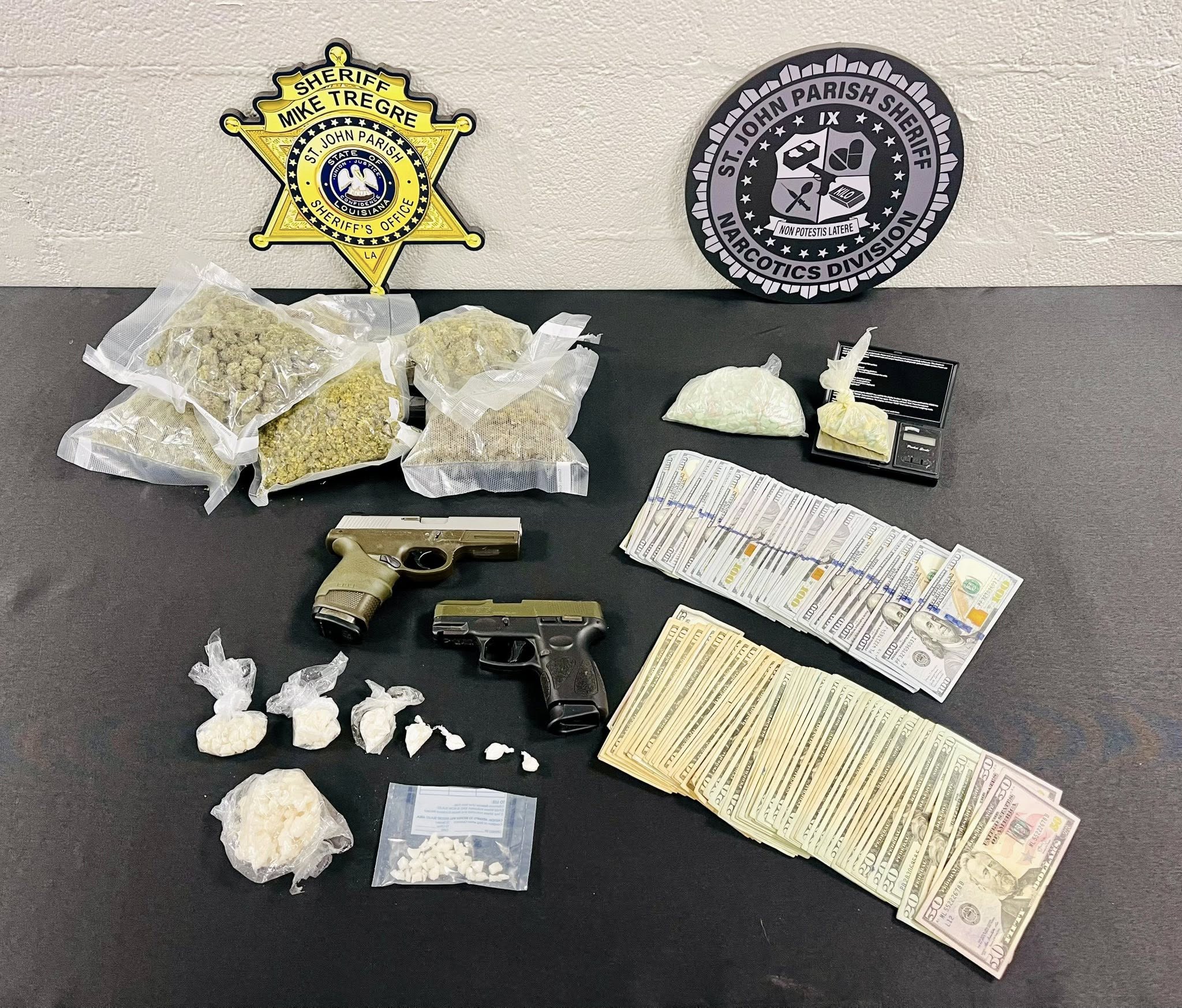Jindal assesses needs on visit to St. John
Published 12:00 am Friday, September 19, 2008
By ROBIN SHANNON
Staff Reporter
LAPLACE – Officials in St. John Parish were told Wednesday that the parish has the support of the state as efforts toward recovery from Hurricanes Gustav and Ike continue.
Governor Bobby Jindal, who spent all last week touring parishes affected by the back-to-back storms, told Parish President Bill Hubbard, a handful of St. John council members and other parish officials, that he has been canvassing Louisiana to determine where each parish stands in the recovery process and where the state can provide a leg up.
“We’re going to be with you every step of the way,” Jindal said. “It’s a frustrating process and some things may not make sense, but you will have the support of the entire state.”
During the hour-long meeting at the St. John Emergency Operations Center, Hubbard asked the governor how close Louisiana is to getting the 75 percent of recovery costs the federal government normally covers. Jindal said the state is fighting for total reimbursement.
“I sent another letter to FEMA again today asking for 100 percent,” Jindal said. “If they are doing it for Texas, they can do it for us. I don’t think people outside of Louisiana realize how hard we were hit with these storms. We certainly did not ‘dodge a bullet.’”
The governor also said the state has been looking at ways to strengthen infrastructure in regard to electricity. He said outside utility companies, which have come into Louisiana to get parishes back onto the state’s power grid, have offered up ways of improving the placement and configuration of power lines.
“Restoring electricity is paramount to recovery,” said Jindal. “With power back up, business can get going again and people can come home. We need to see what we can do to harden our lines to avoid the massive outages the state experienced.”
Jindal also expressed the state’s concern over the increase in mosquito population as a result of higher water levels in certain areas. He said the state would spend an extra 15 days doing aerial spraying throughout Louisiana to try to eliminate the insects. He said crews were being positioned at this time and spraying would commence as soon as possible.
When it came to specific recovery initiatives in St. John Parish, Hubbard told the governor that storm surge is a huge concern every hurricane season since the parish is not protected by the federal levee system. It was especially evident during Hurricane Ike, when wind-driven surge from Lake Pontchartrain flooded streets and crept into homes.
On a map of St. John Parish, Hubbard showed Jindal low-lying areas of the parish where homes were flooded. He explained to the governor that the main drainage canals from the parish to the lake go under Interstate 10 and few if any have ever been cleaned out. Hubbard also offered up an idea that may help keep some of the surge from entering the parish.
“I’d like to see about installing what I call ‘flapper valves’ on some of these canals so that water can drain out but can’t flow back in,” Hubbard said. “If we could at least get that in place, we would be in great shape.”
Jindal said the parish could use hazard-mitigation funds to pay for improvements like the ‘flapper valves,’ which, Hubbard estimated, would cost between $3 million or $4 million. The governor said that funding should be in place before the next hurricane season.
“This is the sort of project that those mitigation funds were designed for,” Jindal said. “The idea is to set things in place before a storm threatens because it is far more expensive to clean up after the fact.”
Jindal ended the meeting with praise for the parish for its efforts to evacuate a considerable amount of the population for Hurricane Gustav and offered up a great story on his thoughts regarding the painful process.
“When Hurricane Georges was bearing down on us, I was still working in the private sector,” Jindal said. “We were living in Kenner at the time and my wife and I were discussing if we should stay or go. She said to me that I could stay but if I did I’d be here with the kids because she would leave. She said I could stay here with them with no food, water or electricity. That’s when I said ‘what can I start packing.’ It is a frustrating thing to evacuate, but you have to do what is best for yourself and your family.”





